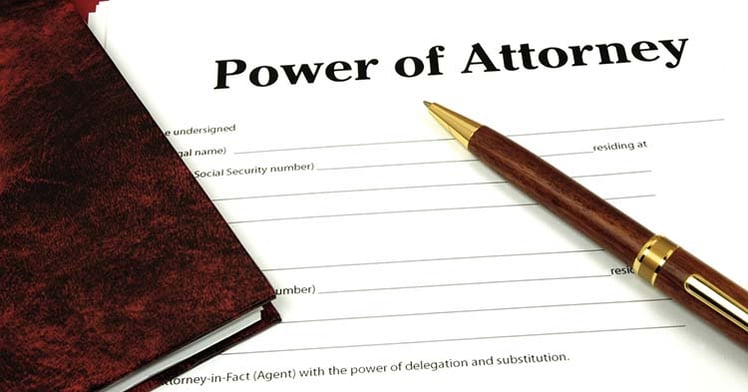
Establishing a power of attorney can be beneficial in a number of scenarios.
Your power of attorney can help manage a wide range of personal affairs. He or she can purchase and dispose of real property assets in your name by signing all required documentation to complete transactions. Your power of attorney also can manage important financial affairs, such as your investment accounts, banking, taxes, and debt payments.
They also can act in your stead if you become incapacitated and can’t manage your own affairs. Having a power of attorney in place keeps your family members and loved ones from going through the lengthy and expensive court process of declaring you legally incompetent in the event of a severe accident or other tragedy. Your agent can continue managing your affairs without interruption, which can be important if you have significant real estate holdings or self-managed brokerage accounts.
It’s important to know when the duties of a power of attorney end, though.
When Does Power of Attorney End?
Establishing power of attorney can be a useful tool to help manage a person’s legal and financial affairs or healthcare concerns, especially for seniors. The person you designate to act on your behalf is known as an agent or attorney-in-fact, while the person who authorizes the agent to act on their behalf is called the principal or grantor.
In all states, the duties and responsibilities of the authorized power of attorney end when the principal dies. This scenario can trigger a few different scenarios regarding who takes over managing the decedent’s affairs.
Upon your death, a court-appointed or legal executor will assume management of your affairs. Your POA becomes null and void, and he or she no longer has any legal authority regarding your estate. If you named an executor in your will and designated someone who will act in the same vein as your power of attorney, your wishes will be carried out per the instructions in your will. However, if you pass without a will, the court will have to appoint an executor, and your estate will go through the lengthy and costly probate process.
Your affairs could be tied up in an extended legal process, and the agent you had previously tasked to look after your affairs will have no way of helping. If you were named power of attorney for your elderly parents and were paying their bills through their checking account, you won’t be able to access those funds upon their passing since you no longer have the authority to act on their behalf. You’ll only be able to settle their affairs if you were also named executor of their estate.
The Bottom Line
When financial institutions learn of an account holder’s death, they place a freeze on any funds so that the accounts can be settled by the executor of the decedent’s estate. If you were acting as power of attorney prior to death, you will be denied access to those funds regardless of your intention for their use.
You can avoid a great deal of hassle when naming an agent by also appointing an executor or administrator of your estate – it can even be the same person. Consulting with an experienced estate planner can help you learn more about a power of attorney who will manage your affairs while living and an executor who will settle them when you pass.
This material is for general information and educational purposes only. Information is based on data gathered from what we believe are reliable sources. It is not guaranteed as to accuracy, does not purport to be complete and is not intended to be used as a primary basis for investment decisions. It should also not be construed as advice meeting the particular investment needs of any investor.
Realized does not provide tax or legal advice. This material is not a substitute for seeking the advice of a qualified professional for your individual situation.



